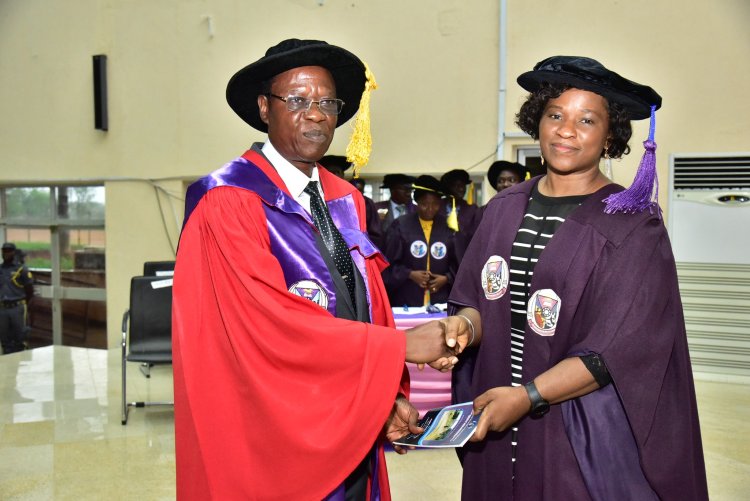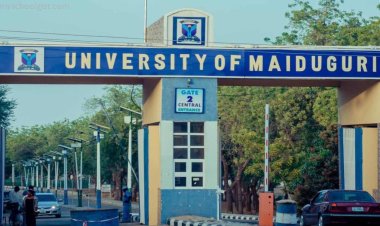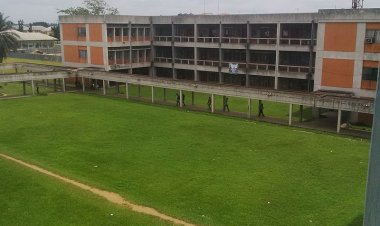Nigeria Must Develop Regional Agric Centres To Serve as Economic Hubs - FUTA Don Prof. Joseph Basorun
Professor Joseph Basorun stated this while delivering the 151st inaugural lecture of the Federal University of Technology, Akure, FUTA on Tuesday 21st March, 2023.
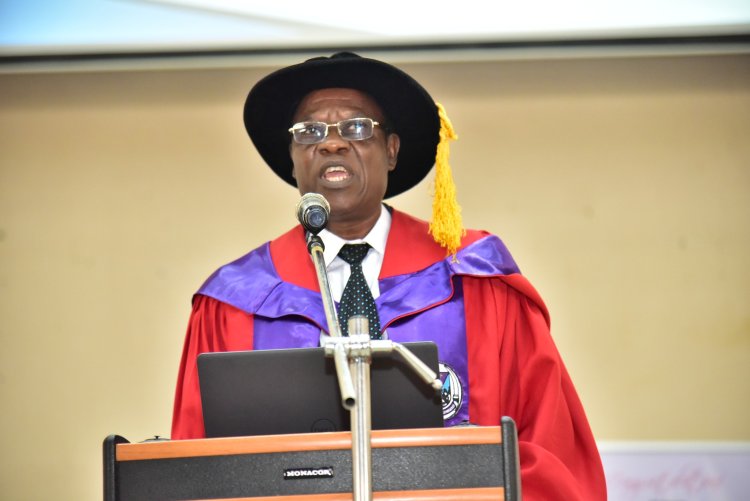
Nigeria Must Develop Regional Agric Centres To Serve as Economic Hubs - FUTA Don Prof. Joseph Basorun, Professor Joseph Basorun stated this while delivering the 151st inaugural lecture of the Federal University of Technology, Akure, FUTA on Tuesday 21st March, 2023.
NIGERIA SHOULD DEVELOP REGIONAL AGRIC CENTRES TO SERVE AS ECONOMIC HUBS - FUTA DON
Regional areas for agriculture and agro-industrial activities, Agropoles should be properly developed and managed to become the new economic hubs for the Nigerian economy. Professor Joseph Basorun stated this while delivering the 151st inaugural lecture of the Federal University of Technology, Akure, FUTA on Tuesday 21st March, 2023. Basorun, a Professor of Urban and Regional Planning of repute speaking on the topic, “Transformation of Rural Narratives through Regional Agropole Planning”, said “Nigeria is blessed with a number of agropoles whose potentials can turn around the economic fortunes of the rural areas. What is required is ensuring that our regional development strategies correspond with the complex character of rural development. The agropoles are hubs of economic prosperity that can create wealth, job opportunities and promote development projects by the local people, government and donor agencies to reduce regional inequalities.”

He said in order to achieve the above, the federal and state governments must focus attention on Agropole Development Plan (ADP) for the country to delineate the districts or regions of identified rural settlements with the monopoly of production of an essential agricultural product for a special regional planning policy. According to him, this will replicate the Federal Government Community-Based Agriculture and Rural Development Programme (CBARDP) initiated in the northern Nigeria since 2003 for awareness and capacity building as well as rural community development.
Speaking on how to sustain food surplus, Professor Basorun said enhancement of the value-chain of the agropole products should be prioritize. He said “these food products (e.g. rice, yam, cassava etc) have huge potential that can be further processed into vital food items such as flour, cake, noodles, wine etc to increase transaction and demands within and outside the region.” He emphasized the importance of the rural agrarian areas in Nigeria describing it has the basis for capital formation for the country and a major source of domestic goods and raw material for industrial operations. He said the rural sector is the reservoir of the nation’s staple food such as maize, cassava, wheat, rice, guinea corn and plantain.
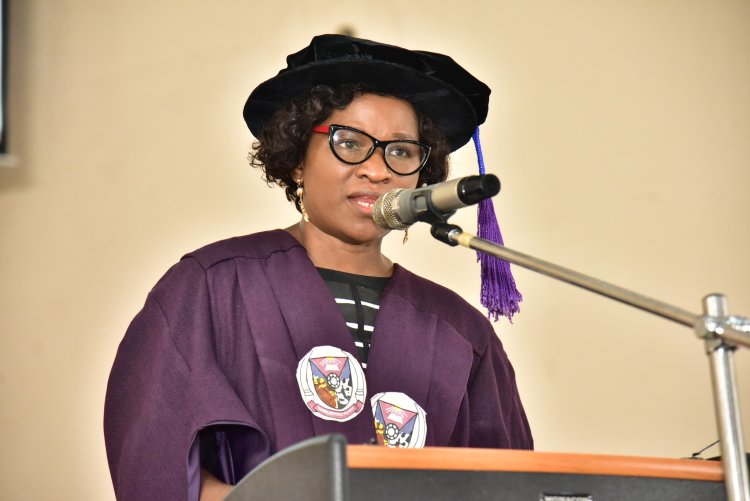
He identified and commended some government policies aimed at improving local food production such as River Basin Development Authority (RBDA) programme, Farm Settlement Scheme (FSS), Directorate of Foods, Roads and Rural Infrastructure (DFRRI), Better Life for Rural Women (BLFRW), Rural Water Supply Scheme (RWSS), Agriculture Development Programme (ADP), Rural Electrification Scheme (RES), National Accelerated Food Production Programme (NAFPP), Pasture and Grazing Reserves (PGR) among others.

The don stressed the need for state governments to prioritize investment in infrastructure to promote the regional character of the products at the agropole adding that with good roads linking the rural settlement (agropole) with the sub-regions of patronage, spatial distribution of its products will be enhanced even beyond state’s boundaries. He called for development of other basic infrastructure like water, electricity, health and social facilities and housing at the agropole to raise the living standard, thereby reducing migration of people from the rural to urban centres as they make the best out of the economic opportunities the community presents.
On commercialization of the agropole products, Professor Basorun, a Fellow of the Institute of Policy Management Development said once the agropole regions have been demarcated, the planning and management of specific regional projects should be under a proposed Regional Rural Development Commission (RRDC) in collaboration with the State Agricultural Development Project (ADP). He called on the RRDC to strengthen the marketing infrastructure and organization through Regional Marketing Development strategy at the agropole. He added that regional coordination of the marketers’ modes of operation with the establishment of Product Marketing Depot (PMD) is necessary to restructure the local and periodic sales of the agropole products.
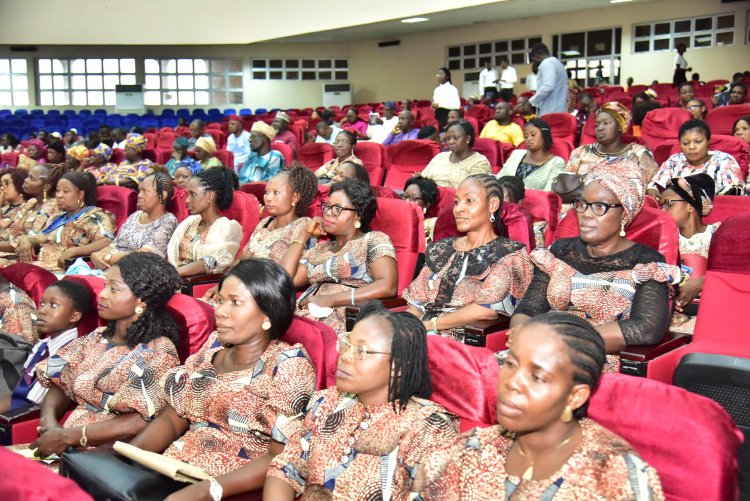
The don further recommended gender balance in food production to improve household economy at the agropole. He said “no production activity should be the exclusive preserve of a particular sex if efficiency of operation must be guaranteed. Attention should be concentrated on strategies that are free of gender bias by the state and local government for full participation of both sexes in all agropole enterprises to boost income and general economic development of the rural areas.”
Professor Basorun advocated training programmes (workshop and seminars) for all food handlers including farmers, vehicle drivers, processors, market traders and retail store owners. He called on governments through the RRDC to collaborate with stakeholders such as the Ministries of Commerce and Industry, Agriculture, Local Government to handle such trainings.
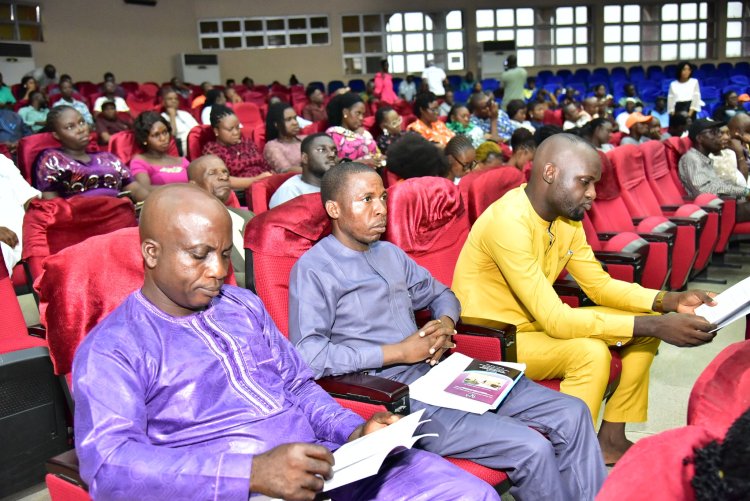
In her remarks as the Chair at the lecture, the Vice Chancellor, Professor Adenike Oladiji, said Nigerian agrarian revolution is long overdue, adding that lectures like this will create better avenue to achieve it. She described Professor Basorun as a fulfilled don of regional planning with great impact in training students and research activities.
